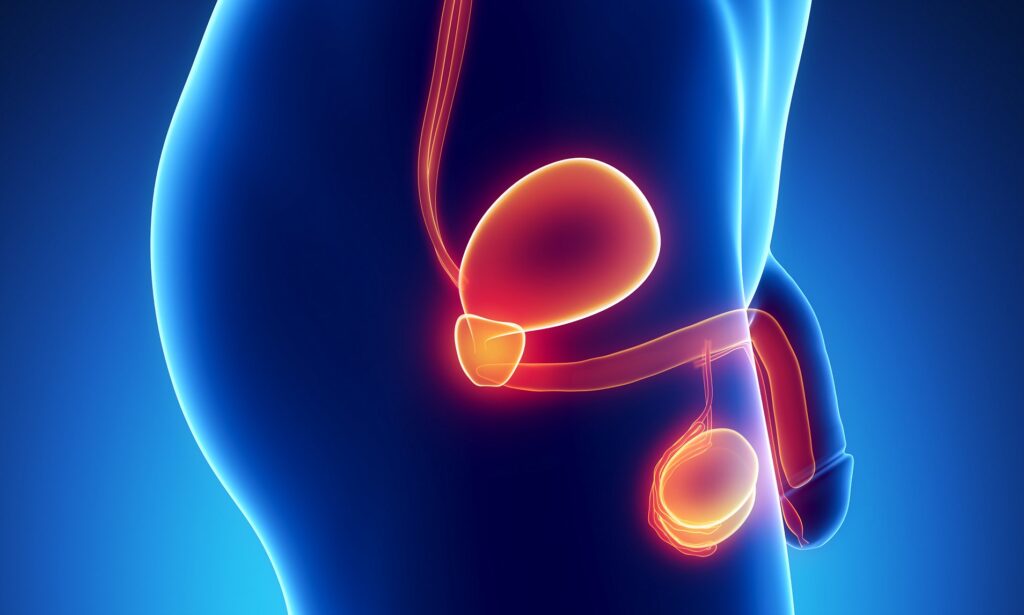- March 3, 2023
- By: Dr. Subodh Kamble
- No Comments
PENILE CANCER: A battle to save manhood!!
After hearing from others, a dutiful son brought his 73-year-old father to me to show a penile lesion (abnormal area on penis). On clinical examination it was typical squamous cell carcinoma (type of cancer) possibly clinical grade T2 and was involving more than half of the glans penis. I carried out biopsy for histological confirmation.
As I had expected the biopsy came back positive for cancer. I had further consultation with the father and son. I explained them the diagnosis, further investigations and stepwise management plan. The groin lymph nodes (lymph glands) were non palpable but still there remains 20% chance that they could have microscopic cancer in it. Such patients require MRI scan of the penis for local staging (T1-T4) following injection of substance causing artificial erection to see all layers properly and to guide about the involvement (I would elaborate this in my next post). We needed to do CT chest abdomen and pelvis to make rule out metastasis (spread of cancer to other organs) and Ultrasound scan of the groin to look at abnormal lymph nodes plus or minus FNAC (Fine needle aspiration cytology), where with help of fine needle a substance is collected from that node to see presence of cancer cells.
Such patients then need partial amputation of penis or Glansectomy depending on spread of cancer (removal of abnormal part of penis) plus or minus reconstruction. This is combined with either Sentinel Lymph Node biopsy (if facilities are available) or superficial groin dissection on both sides. If FNAC is positive or any lymph node is involved with cancer, then that side needs radical (complete) groin dissection.
It was obvious that prior to coming to me they certainly had consulted few doctors, and it was obvious that after consulting me they went on to do a bit of shopping around in terms of cost etc (a very common practice in India). It is surprising and same time concerning that a Onco-surgeon doctors told him that his cancer is just in the skin and he can just have that removed. The Onco-Surgeon went on to say that there is no need for MRI scan and no need to do anything for groin as well! It is without a doubt that the Onco-Surgeon who examined him possibly had limited clinical skills who failed to understand and appreciate the involvement of glans (penile head). In my experience in several countries I have travelled and received training from, Urological cancers are dealt by Urologist and/or Uro-Onco Surgeon.
Penile MRI is a specialised procedure and not everyone are able to do it. It seem that the Onco-surgeon had no expertise or experience in penile MRI so he decided to say there was no need of it.
My patient like any other human probably wanted to hear that the disease is minimal and just simple excision would cure him. He came back to see me, he wanted me to do the same thing as the Onco-Surgeon stated, which is just removal of foreskin, even though the penile cancer had involved foreskin and the shaft skin too. I explained him, as well as to his two sons that this is not the ideal treatment for him and that the margins would be positive, chances of recurrence would be extremely high, and he wouldn’t have completely normal functioning penis. I made all of them understand that the treatments suggested by the Onco-Surgeon and the treatment he wanted was extremely substandard and unsafe for him. I also discussed option of radical circumcision and external beam radiotherapy as the lesion is less than 4 cm. at the same time, I also explained him the risks and the benefits of such treatment after which he decided to undergo proper curative surgery. My aim is to give him functional penis (he would be able to pee in standing position) with a curative surgery.
I planned a partial penile amputation for him along with Sentinel Lymph Node biopsy (SLNB). I will write more about SLNB in my next post and my current struggle gathering things together in Gujarat for SLNB. I would also share my current experience with penile MRI in Gujarat in my next post. I will write a separate post on importance of penile self-examination, penile hygiene and how to carry out penile self-examination and early detection of any penile abnormalities, as it could be the beginning of the penile cancer. Stay safe and stay healthy.

